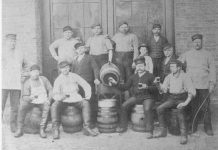Today’s column is excerpted from 40 Years in Beer, Part Twenty-Five: The end of the beginning (1989-1990), an installment of my serialized memoir of a career in beer. Part 76 was published in March, and more are on the way as time allows; read them free of charge at my website, and find the series overview here: The 40 Years in Beer Compendium: links, previews, and coming attractions.
—
According to conventional sources of Internet wisdom, a Europhile is “a person who is fond of, admires, or loves European culture, society, history, food, music etc.”
It must be conceded from the outset that certain other digital sources are neither benign nor forgiving, suggesting instead that Europhilia is a self-inflicted mental illness prompting sufferers to lose sight of their rabid and periodically delusional America-first patriotism.
It will have become evident to readers of this series that I can only shrug and expedite the tendering of my guilty plea. That’s me, to a tee—a Europhile, by both definitions, lacking any inclination whatever to apologize for it.
Europhilia has defined my very existence since college, and traveling through the continent just shy of 50 times since the mid-1980s naturally has cemented these bonds, leading to a legitimate question: Shouldn’t I have long since pulled up stakes, opted for full immersion, and chosen to become an expatriate? I know several Americans who have opted for this remedy, and envy them unreservedly.
All I can say is, “Welcome to my personal existential struggle.”
It remains that I’ve always been a slow learner, a late bloomer, and prone to a tenacious (some might say consistently self-defeating) stubbornness. Becoming an expatriate as recourse to the foolishness of American exceptionalism has appealed to me for decades, but fleeing the country hasn’t ever seemed an honorable response.
Rather, a long time ago I grudgingly accepted the drunken stork’s tragic error in unceremoniously depositing me atop the Ohio River mud flats, rather than near the Rhine, Danube or Tagus; as a way of sublimating my eternal Euro itch, I’ve resolved to scratch it by counter-intuitively staying put: teaching, sharing experiences, and when I’m lucky, annoying the jingoistic America-First crowd.
Taking all this into consideration, we return to the end of my travel year 1989, when this internal dialectic began releasing its findings.
In retrospect, I felt an expanding urge to bring a little bit of Europe back to Indiana, if only inside the four walls of home or work, and the collision of this impulse with my escalating beer enthusiasm produced an unexpectedly tectonic resolve.
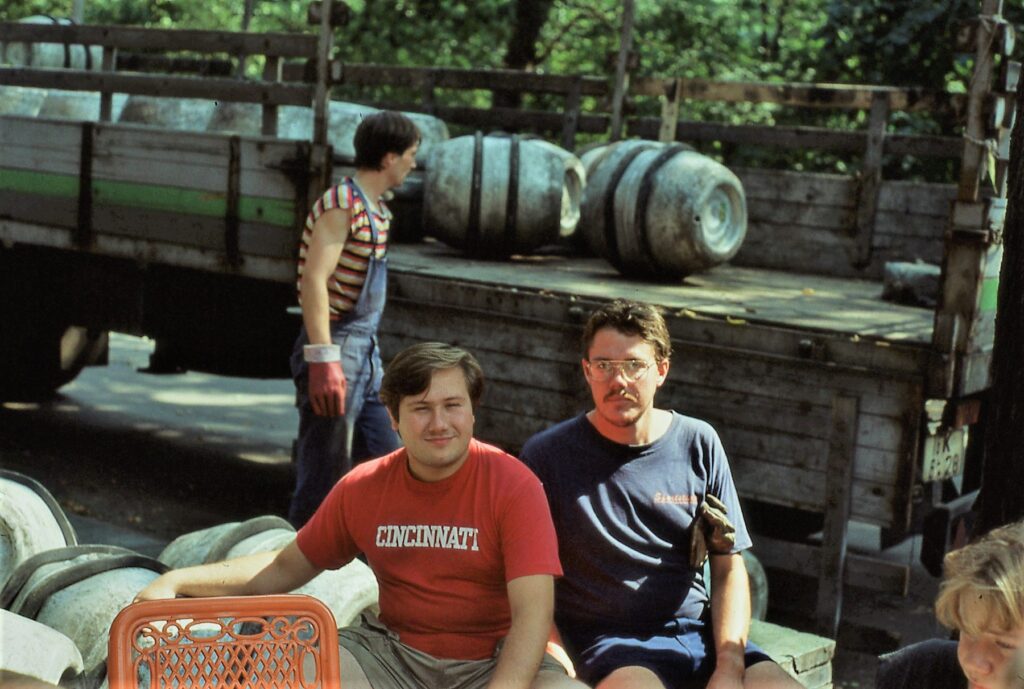
Returning home in 1989 always struck me as tantamount to completing my first few rounds of preliminary coursework. There was so much more to learn, but we all must begin somewhere, and as Europe plunged into its own post-communist metamorphosis, I felt that for me, at the very least, it was the end of the beginning.
Six months in Europe vastly furthered my beer education, and finally a synthesis emerged, because as a specialized pursuit all its own, “beer” served both as a second language and the cultural grounding point for a Europhile in search of an anchor.
I’d already been working in the beer biz at home, but it was becoming clear that this pursuit might be embraced more comprehensively in a way that brought together many other of my personal interests, in the process becoming a Europhile’s affirmational bridge to the chosen lands even while languishing in abject depression stateside between journeys.
This future course began taking vague dimension, although it’s important to delineate what I had and had not learned. Brewery tours and sheer volume of consumption aside, none of my 1980s-era travel experiences addressed the science of brewing, about which my cranial capacity remains woefully deficient these many decades later.
I know the brewing process well enough to explain the rudimentary parameters, but lacking nuance or great grasp of detail. I’m not unduly troubled by this, apart from taking care when addressed as a “brewmaster” to correct this misconception with all due haste. I never wanted to be a brewer; my aim was to trade in beer—and this meant equal parts reluctant capitalist, pre-industrial shaman and teller of tales (many of them very nearly true).
What I experienced by traveling during the 1980s was beer as a form of traditional performance art, theatrical and atmospheric, offering an “area buzz” sort of experience that only improved with greater knowledge. A Europhile like me, immersed in places like Bavaria, England and Belgium, could “feel” beer in a way that was hard to do back home. I wanted to replicate this feeling to whatever extent was achievable, but first there were a great many questions.
How did beer and culture intertwine? Why did so few of the old-school German pubs have gigantic, elaborate bars in the American sense? Weren’t vintage beer labels, coasters, designs and those epic Carlsberg posters just clever and wonderful? And what about glassware, whether shapely Irish pints filled with Guinness in Sligo, buxom liter Mass mugs at Oktoberfest, or the rows of one-off chalices at a Belgian beer café?
Put simply, for me beer was far more interesting in a European context than an American.
In the United States beer had devolved to a base level of commoditized triviality; bearing in mind that only the first glimmers of the “craft” beer revolution/corrective were discernible in the Louisville metropolitan area during the 1980s, all we seemed to have at home was a succession of light, lighter and lightest golden lager beers; incessant and vapid advertising aimed at children and the plainly feeble-minded; and Mad Mothers running rampant while advocating the establishment of a surveillance state.
These were little more than starvation rations for life forms I’d assumed (perhaps over-optimistically) to be sentient, and yet a great many of my countrymen took their cues from Pavlov’s mutt and salivated when prompted by the sheer idiocy of American beer “culture.” At the same time, I knew from my Scoreboard Liquors employment (which continued part-time in 1990) that there was an under-served market locally for the same beers that interested me.
It all added up to a personal tipping point, albeit one experienced as a component of a much larger paradigm shift, because I was beginning to see why, during the opening thirty-odd years of my existence on this planet, beer and brewing as an American business sector had eroded so spectacularly, becoming something very different than what it had been for the previous century or more, ever since the German and Central European influx during the mid-1800s brought lager brewing (and lager modes of thinking) to the New World.
Much of the previous generational thinking had surely corresponded with the persistence of European social habits, which had long since been rendered comprehensively into taste-free beige by the American melting pot. But during the 1980s, they were still capable of being experienced in Europe, hence the glory of witnessing them abroad.
We knew that Prohibition in America wiped out the old ways, but it was less clear during the 1980s how a triple whammy—Great Depression, post-Prohibition recovery and World War II—completely changed the economic landscape for beer and brewing. Local and regional business models were swept away by the imperative of mass production for a national (and later international) market, and while similar factors certainly were occurring in Europe by 1989, the Cold War bizarrely helped to maintain previous habits by restricting continent-wide (read: capitalist) growth.
Once the Wall fell and the geopolitical landscape was reordered, so was the beer business in Europe. In retrospect, it became obvious that 1989 was a fault line, the end of one epoch and the beginning of the next. I was fortunate to have witnessed Europe before its post-Cold War transformation.
When communism collapsed, a spasm occurred; a communications revolution ensued, and old-school ways were swept away, freeing (and I use this term with requisite caution) Europe to plunge down the same pathway as America, where I’d come of age amid a beer culture rendered increasingly generic, a one-swill-fits-all celebration of totalitarian-level mass marketing that reeked of the plastic and ephemeral. A few interesting vintage elements from a century or more before were visible beneath the conceptual fluff, and yet these survived more intact in sectors like bourbon production than brewing beer.
Around this time I became found of the German word Weltanshauung, defined as “a particular philosophy or view of life; the worldview of an individual or group.” This is precisely what I was looking to establish, Weltanschauung, as a prelude to entering the business of catering to it; my aim was let people know what they were missing, then be among the handful capable of providing the compensatory experience.
My evolving Weltanschauung of beer would cater to beer lovers who wanted more than flavorless dollops of alcohol, mindless brand loyalty and meaningless drinking assignations. Beer was about something, and we could be about something, too.
For the most part, the “beer bar” idea that began growing from these considerations in 1990 was entirely improvisational because we (my girlfriend and her family) didn’t have much in the way of useful precedents. We took American examples where they could be found, and tried to envision how these might be adapted with European embellishment.
The run-up lasted until 1992, as we did what we could with better beer for the time being in the building housing Sportstime Pizza, and a bit later Rich O’s BBQ (remember that?), seldom knowing exactly how to undertake it, amid a Southern Indiana locale where even my best friends openly doubted that our efforts had a chance of succeeding.
But they came to New Albany (even from Louisville), and the effort did succeed, even when it meant learning on the fly and making up the rules as we went along.
And to be perfectly honest, I’m damned proud of all that.
—
Previously at Hip Hops:
Hip Hops: The shocking fate of an innovative brewer in pre-Prohibition New Albany



















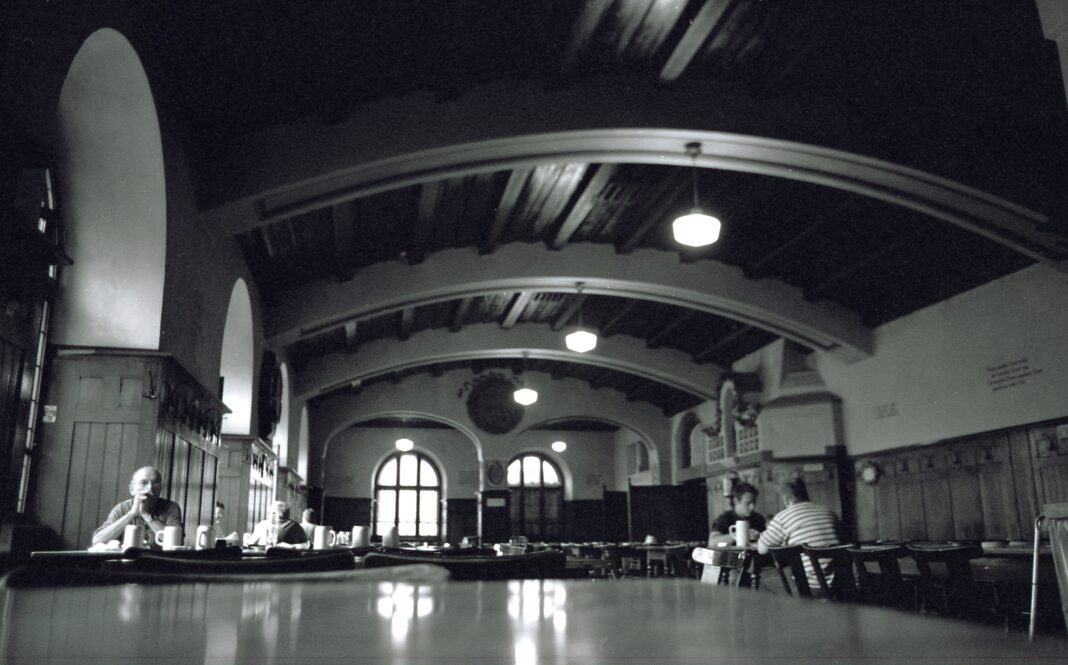
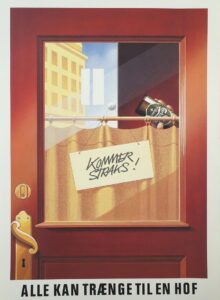
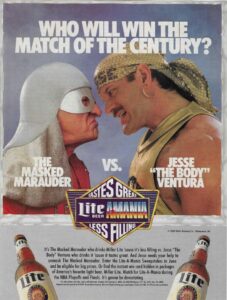
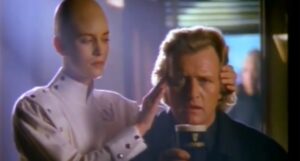
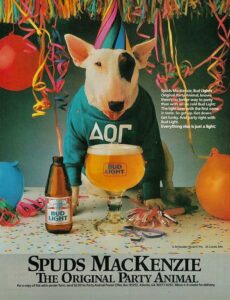
 Roger Baylor is an entrepreneur, educator, and innovator with
Roger Baylor is an entrepreneur, educator, and innovator with 